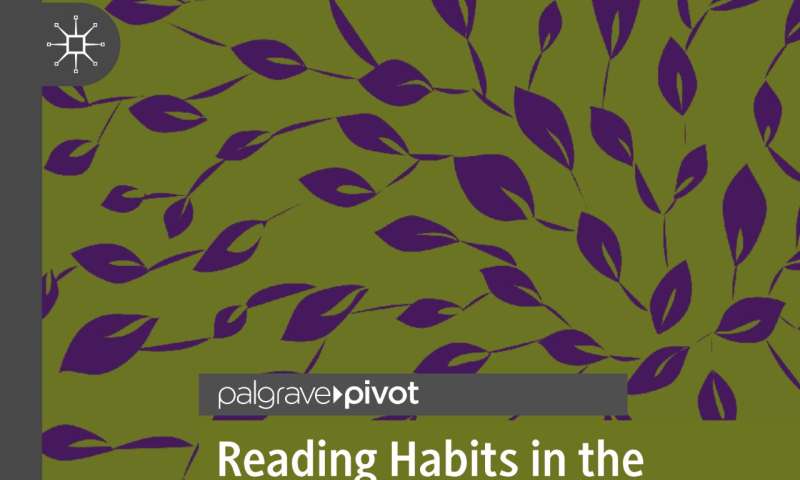Insights into changes in UK reading habits during COVID lockdown revealed in new book

Researchers from Aston University have released a book that explores the impact of the pandemic lockdowns on reading habits.
"Reading Habits in the COVID-19 Pandemic" presents and analyzes the results of a comprehensive survey that captured how people engaged with literature during the first U.K. COVID-19 lockdown.
The team of experts from the University's School of Social Sciences and Humanities consisted of Dr. Abigail Boucher (lecturer in English literature), Dr. Marcello Giovanelli (reader in literary linguistics), Dr. Chloe Harrison (senior lecturer in English language and literature), Dr. Robbie Love (lecturer in English language) and Caroline Godfrey (researcher in applied linguistics).
The survey generated a large body of responses totaling about 100,000 words, which were analyzed using different methods to provide a comprehensive overview of the impact of the pandemic on people's reading habits, experiences and genre preferences during this time.
The book starts by introducing the Lockdown Library Project, detailing its research methods, design and key findings. It then analyzes how the first U.K. lockdown affected reading behavior, covering changes in reading frequency, methods of accessing books, discussions about reading, reading as a coping strategy and the trend of revisiting familiar books for comfort or nostalgia.
Additionally, it explores how different literature genres, especially popular fiction, influenced the reading experience during a crisis, offering valuable insights for both academics and practitioners in education and library services, as well as those in marketing, publishing and creative industries, and various health care groups—in particular practitioners who deal with mental health care and bibliotherapy.
Dr. Marcello Giovanelli, head of English, Languages and Applied Linguistics (ELAL) at Aston University, said, "This book offers a unique lens into the intricate relationship between reading literature and societal shifts during unprecedented times.
"Our findings not only shed light on individual reading behaviors but also contribute to broader discussions in fields such as literary studies, health humanities and education."
"We hope that this book will appeal to a wide audience, including academics in literary and genre studies, applied linguistics, corpus linguistics, stylistics, health humanities and sociology. Additionally, we think that practitioners in education, bibliotherapy and library services will find valuable insights to inform their work."
Dr. Chloe Harrison said, "Our work focused on how participants revealed the use of reading as a coping strategy during the first lockdown.
"We identified themes indicating that reading served as a source of security and distraction from reality. Revisiting familiar and nostalgic stories provided comfort while also offering an escape from the present situation.
"Overall, our research highlights the significant role that re-reading plays in helping individuals cope during times of crisis, offering insights into the emotional and psychological benefits of this practice."
Provided by Aston University